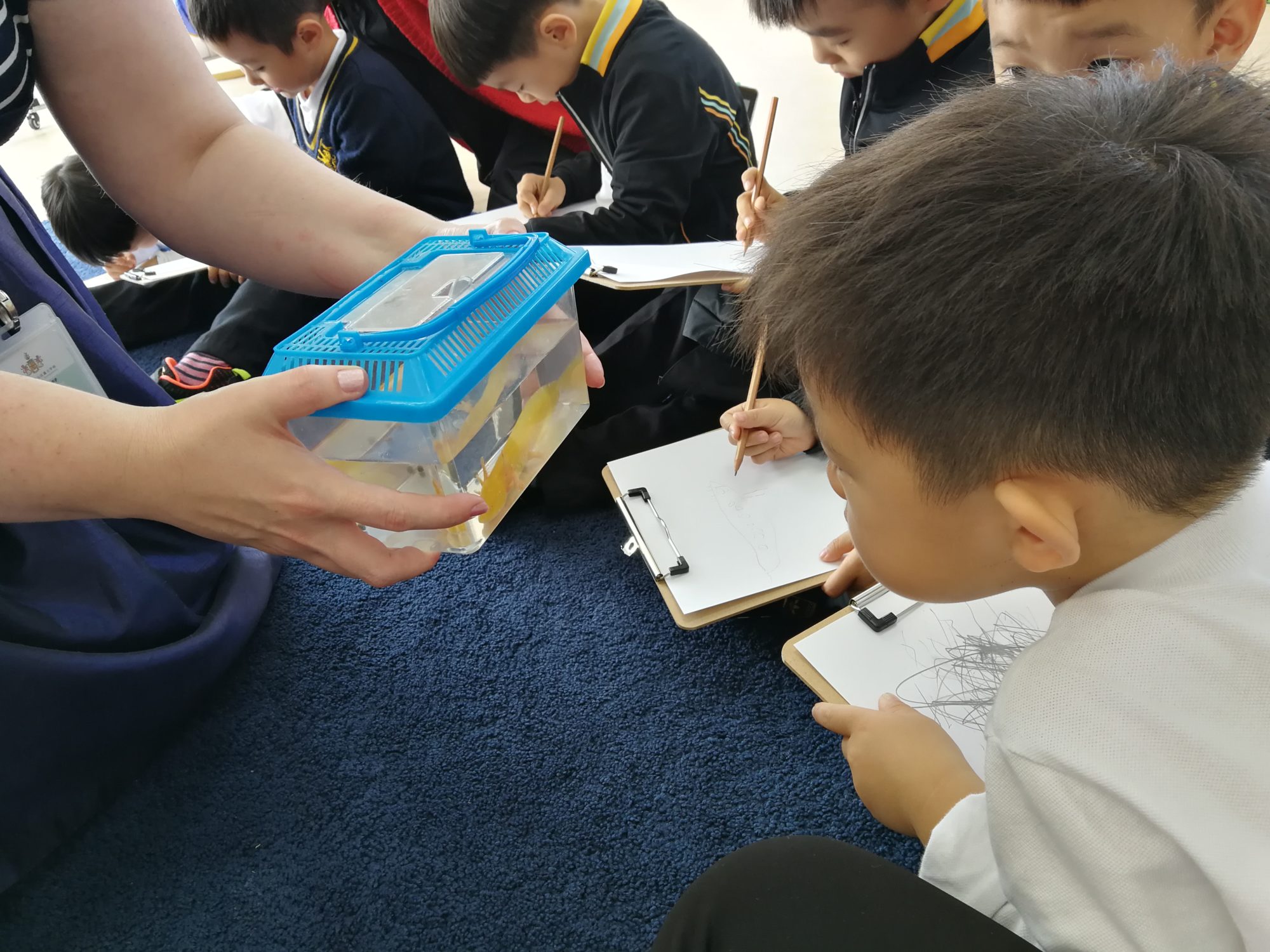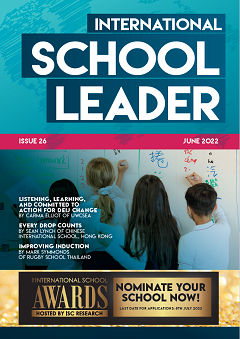By Fiona Carter and Matthew Savage
Wellington College China has a rigorous governance cycle which requires a raft of quality assurance data to help inform and communicate strategic priorities for improvement. When I joined the group, it was immediately obvious to us all that there was an ‘elephant in the room’: as is too often the case, Early Years was viewed through a different lens altogether, and even through different lenses from school to school within the group, rendering a consistent and contiguous data journey impossible. Even receiving primary school leads were confused as to the meaning of the data, and so this data was often not even included in transition processes.
There were other challenges too: accuracy of judgement; standardisation and moderation; simultaneously satisfying international benchmarks and the Wellington College China ‘Annual Review’, and also our school boards and regional government guidelines. There was a lack of consensus; change was necessary, not only meaningful, authentic and impactful for all constituents, but also growing the necessary learning skills, knowledge and understanding, and, most of all, well-being and involvement. No commercial system offered all of these, so we had to build our own.
Data habits
As with all change, sustainability is key. For example, for our new Early Years Framework to work sustainably, growing excellent data habits was an essential and ongoing process. So too was – as Matthew Savage, education consultant and trainer, frequently says – ensuring “food for thought” became “appetite for action”.
Our staff needed to become confident and competent using a triangle of data beneath which to dig – ‘data-mining’, if you like – converting this into palpable improvements in learning and teaching. We also wanted these data habits to be developed across both our Chinese and international teachers, fostering a climate where data questions and conversations are not just healthy and safe but necessary and formative (ie, the ‘regular norm’). Finally, we needed to find a way for our existing IT systems to support us all in this journey.
Stage 1 and progress during COVID
I observed current practice and advised on moderation, bolstered and boosted by the enthusiasm of one school to adopt the Leuven Scales as the first and foremost assessment lens for each child. They quickly became my advocates and trailblazers – not just to other Early Years teams but also to the leadership teams and boards of each school across the group.
Professor Ferre Laevers came to speak at the 2019 Festival of Education, and spent an afternoon with Huili Nursery Hangzhou, which was just the catalyst we needed. In the knowledge that effective data drives best practice, we then co-created our own, bespoke Developmental Indicators for Early Years, with our IT lead, Paul Lu, the brain behind synthesising iSAMS and PowerBI to analyse, track and report the data generated.
The Leuven Scales project gathered pace and it was agreed that all schools would implement the approach throughout Early Years, with two Lead Practitioners appointed in every school. They attended training from the visiting Leuven team and action plans were taken very seriously in all schools. In fact, all was going well until school closures hit in February 2020.
Assessing via a screen young children’s progress using the Developmental Indicators, let alone their well-being and involvement, is impossible, when we all know that active, collaborative and exploratory play is the soil in which children thrive and grow. Therefore, the process had to be suspended temporarily and we used the time to share exemplification and internal support systems.
Stage 2: Digging deeper
Each school Board now has a familiar and consistent tool to judge the quality of its Early Years offer and question strategy in a more informed way. Intra- and inter-school moderation precedes all final data points, and then I am available to support individual schools with any outstanding anomalies.
As our teachers and leads became more confident with their judgements, the next stage was to use the data more strategically, and this is where we started to work with Matthew Savage and #themonalisaeffect.
With Wellington College Tianjin already exploring Matthew’s ‘data triangle’ in the Secondary school, the question was, how could he and we build our own Early Years triangle, telling the data ‘story’ of each young learner, whilst exploring fully the palpable links between the Leuven Scales, attainment and progress?
Further to an initial session with all Early Years leads, it was decided that Wellington College Shanghai would trial the triangulation of Early Years data to explore hypotheses and identify new strategies to maximise well-being, involvement and progress for their cohorts. This would serve as a pilot on which our bilingual nurseries could then build, looking specifically at second language acquisition as the primary vehicle for effective learning and positive well-being in their context. With the momentum growing, and the implementation of #themonalisaeffect rapidly bearing fruit for school and child alike, we are now looking at transition into Primary.
Next steps: Beneath the mask
With so much progress now made in Early Years, and so much good practice consolidated, extending those data stories into Primary will now be critical. There has also been a group-wide agreement on what the Early Years data and our bespoke ‘data triangle’ with Leuven at its core, actually means, and how we can begin to share it with parents in the future. This will prove crucial in ‘spreading the word’ but also in ensuring that, rather than starting again next year, we can build on what we already know about each individual child. We can also continue to develop teachers who are confident in the use of pupil-level, triangulated data to plan and teach not only in the pursuit of attainment and progress but also, or rather first and foremost, in search of what lies beneath the surface of the child.
With the profile of Early Years now ever higher across the group, all other year groups are now being asked to follow a standardised reporting approach, and a cross-group project has been established to ensure parity against the whole group’s grading system. Pastoral and well-being data is now recognised as a pivotal indicator of, and precursor to, successful learning and teaching, and we hope to increase further the visibility and consistency of teaching for and to Leuven, in Early Years and from #earlyyearsup.
In addition, we plan to develop further the triangulation Matthew has helped us introduce, bringing other metrics such as quality of teaching into the mix, as well as conducting action research on how this all works specifically within our bilingual context.
And I haven’t even mentioned beginning to look at the well-being and involvement of our staff, which is another article entirely!

 Fiona Carter is Director of Academics (Early Years) at Wellington College China and Matthew Savage is an educational consultant and trainer at Savage Education and found of #themonalisaeffect. Connect on LinkedIn with Fiona and with Matthew.
Fiona Carter is Director of Academics (Early Years) at Wellington College China and Matthew Savage is an educational consultant and trainer at Savage Education and found of #themonalisaeffect. Connect on LinkedIn with Fiona and with Matthew.
Subscribe to ISL Magazine for more!



